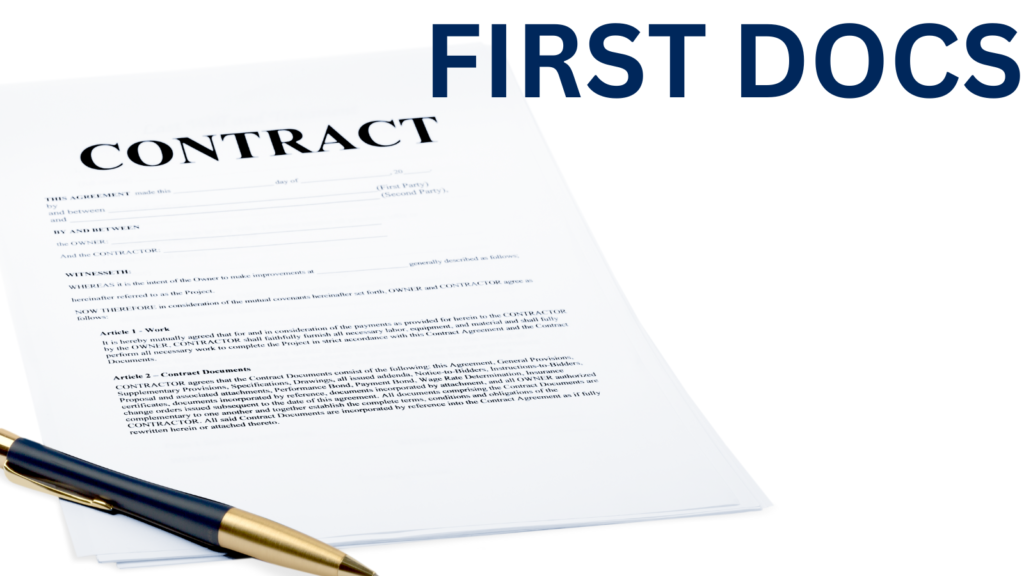
If you just got your business rolling you are going to need a few contract templates ready to use. You do not want to wait until a customer says “yes” and then have to scramble. You also don’t want to be in the position where a candidate is ready to accept your job offer and you can’t send over the paperwork to close the hire. Depending on the complexity of your business and your financial resources, you might want to use an attorney to prepare these contracts. If not, you can usually find a solid template for free on the internet. Either way, do the work upfront so you can pounce on opportunities as they present themselves.
In order to be well prepared think hard about the type of customers transactions your business is pursuing. If you are still in the early days, your product might be fluid. That is fine, just try to imagine the most likely potential scenarios. Prepare templates now for what you think things might look like. Leave lots of blank spaces for the details that are still moving around, but at least get the core contract structure ironed out. I’ve been there a number of times, a customer says “yes” and asks for the documents, and I’ve had nothing to send. However, I didn’t have to panic since I had decent contract templates so I could quickly modify the detailed points and keep those deals moving along.
Beyond just customer contracts, make sure to consider any partnerships your business is chasing as well. If you are using a service provider like a tech firm or consultant, they will prepare the docs, but a distribution or marketing partner may need you to send over a first draft. Get a rough draft together early in your discussions with these partners too so you can get rolling as soon as a deal is agreed.
As it relates to potential employees or contractors, you will also want to have a contract template you can quickly pull out to get a person onto the team. This can be an Offer Letter or an Employment Contract depending on the role and compensation. In most cases this doesn’t need to be anything complex, just make sure you have a template where you can quickly fill in the blanks. These should define the role and the manager that will oversee the new hire. You should have fields for the compensation, including any bonuses or commissions or equity grants. The Offer Letter should cover any benefits like healthcare or retirement savings you are giving to the potential hire, and if none are offered then say so. You may also want to include a standard confidentiality clause and potentially a non-solicit or non-compete. These get a bit trickier and can vary by state. If they are important to you, make sure to discuss with an attorney.
